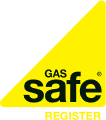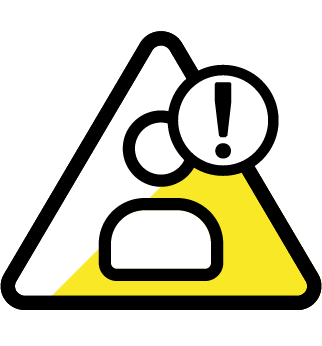Home Gas Safety Tips
Mains gas central heating is by far the most common way that households heat their homes. Around three in four households (74%) in England and Wales1 said it was their only central heating source. An unsafe gas appliance has the potential to lead to gas leaks, fires or explosions, and carbon monoxide (CO) poisoning, but these are all risks which can be avoided by following some simple gas safety advice.
Here’s our advice on how to keep you and your family gas safe:
Gas safety tips checklist
It’s important to remember these gas safety tips to keep you, your family and your pet’s gas safe in your home.
Our seven top gas safety tips
Get an annual gas safety check
Make sure all gas appliances in your property are checked by a qualified Gas Safe engineer once a year. Your engineer will complete a visual inspection of your gas pipework and, in the case of landlord gas safety checks, a tightness test to confirm there aren’t any gas leaks.
If you’re a tenant renting a property, make sure you landlord arranges a gas safety check – it’s a landlord's legal duty to ensure this happens.
Know the signs of CO poisoning
You’ll want to look out for headaches, dizziness, nausea, and breathlessness. More severe symptoms are collapse and loss of consciousness.
If you suspect carbon monoxide (CO) poisoning it’s important to act quickly: if it’s safe to do so turn off the gas appliance, open doors and windows to let air in, and leave the property and go outside into fresh air.
Find out more by reading our Carbon Monoxide Poisoning page.
Check gas appliances for warning signs that they are not working properly.
Look out for lazy yellow flames instead of crisp blue ones, dark, sooty staining on or around the appliance and unusual or unexpected sounds from the gas appliance.
If a gas-related danger is identified in your home, your engineer will attach a ‘Danger Do Not Use’ warning label to the gas appliances. There are two unsafe categories, “Immediately Dangerous (ID)” and “At Risk (AR)”. Learn more about Gas Appliance Warning Labels and what this means here.
Buy an audible CO alarm marked BS EN 50291
Make sure you purchase an audible carbon monoxide alarm and install it in your home, as described in the manufacturer’s guidelines. CO alarms work much like your fire or smoke alarm by sounding an alarm when they detect carbon monoxide – which is a colourless, odourless and tasteless poisonous gas.
Only use a Gas Safe registered engineer
Find a Gas Safe registered engineer by searching the only official register of Gas Safe engineers or call us on 0800 408 5500 and we can help find a registered engineer in your area.
e also have a guide on how to search for engineers with specific qualifications, such as working on boats or commercial appliances. Visit our how to find and check the register website to learn more.
Locate your Emergency Control Valve (ECV)
Find out where your gas Emergency Control Valve (ECV) is located, so you can switch the gas supply off in an emergency, such as a suspected gas leak or presence of carbon monoxide .
Suspect carbon monoxide poisoning?
If you suspect carbon monoxide poisoning, get some fresh air and leave the house as quickly as possible. See a doctor and if you are very unwell call 999 for an ambulance. Call the National Gas Emergency Helpline on 0800 111 999 available 24/7.
Alternatively, find your provider’s gas emergency contact number and more information on our what to do in a gas emergency page.
Other useful gas safety tips
Always check the engineer’s Gas Safe ID card
You’ll want to check the front and back - this is how you’ll know they’re qualified to do the gas work they’ll be carrying out. Knowing the Gas Safe ID card categories allows you to understand what the gas engineer is competent to work on.
For example, the most common types of gas work generally comprise of one or more of the following activities: install, commission, service, and safety check. However, an engineer must be qualified to work on specific types of gas appliances to complete these activities.
Find out more on our Gas Safe ID card categories guide for domestic and commercial gas appliances.
Ensure adequate ventilation
This is essential for gas appliances to burn properly. You’ll want to make sure that no air vents or chimneys are blocked. This is to ensure that an appliance has adequate air for combustion and the flue can operate safely.
Only use gas appliances for their intended purpose
Don’t use an appliance for something it wasn’t meant for - for example, using a cooker to heat a room.
Related resources
- Discover how you can ensure appliances are maintained by a Gas Safe registered engineer and stay aware of what to look out for
- Find out more about ensuring your gas fire is installed and maintained by a Gas Safe registered engineer, and the warning signs which could indicate an unsafe gas fire
- If you have a gas oven or hob in your home, ensure you know the warning signs and what to do to ensure it's safe.
Featured Content
Renting A Property
If you’re a tenant, it’s important to find out what your rights are regarding gas safety – find this information here.
Concerns & Reporting Illegal Gas Work
If you have safety concerns over work carried out by a registered business, or are aware of a fitter carrying out illegal gas work, you can report the details to us.
Carbon Monoxide Poisoning
Carbon monoxide or CO poisoning is one of the major risks of an unsafe gas appliance. But what is it and how can we guard against it? Find out more.



